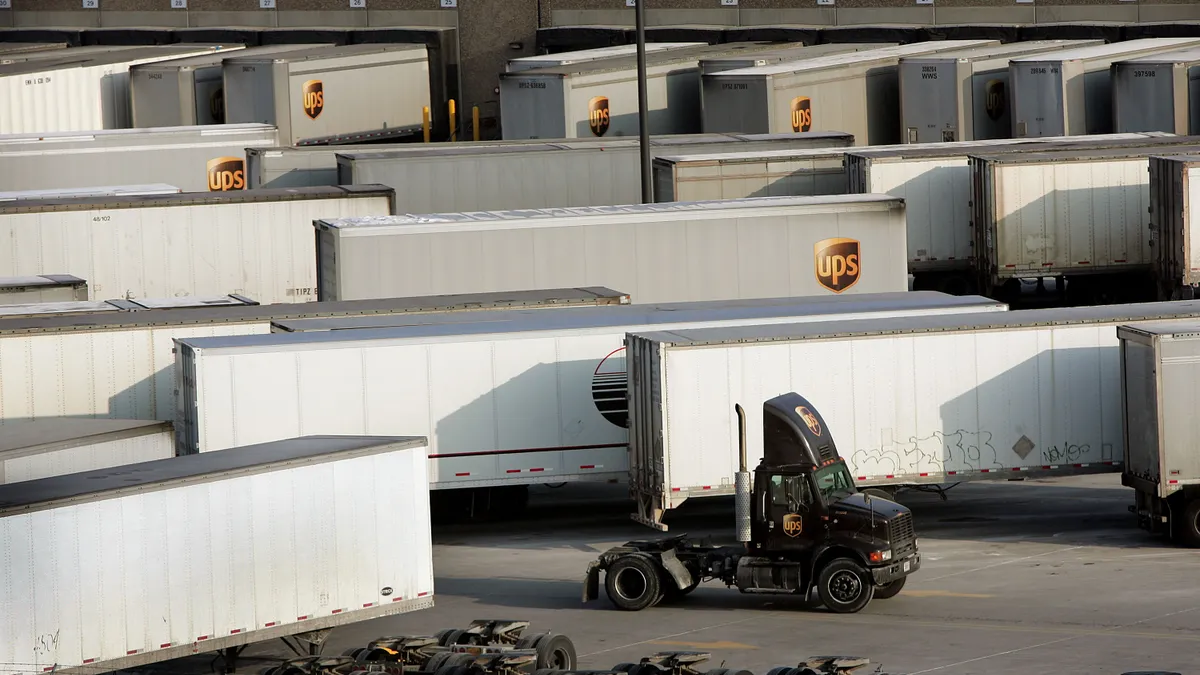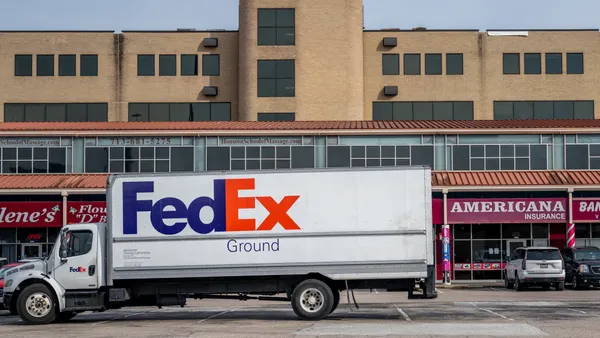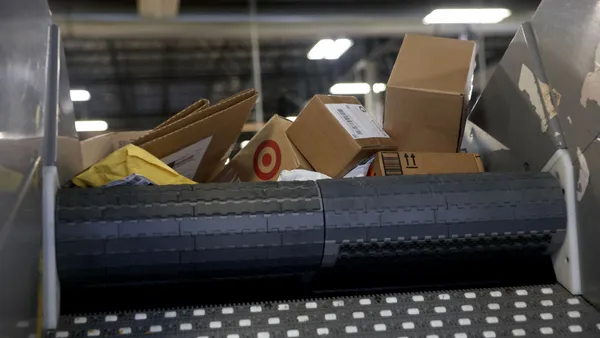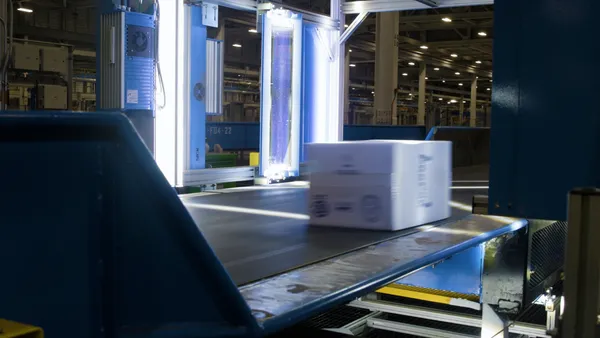Dive Brief:
- Mexico's growing prominence in supply chains provides a major strategic opportunity for UPS to capture more business prior to the last-mile delivery process, according to a company executive.
- UPS is particularly well-positioned to handle the flow of goods from Asia to Mexico that are then destined for delivery in the U.S., said Kate Gutmann, EVP and President of International, Healthcare and Supply Chain Solutions. The logistics giant's wide-ranging capabilities allow it to handle inbound transportation, fulfillment and linehaul for those types of shipments.
- "This is a fragmented market with various players at each stage," Gutmann said during the company's March 26 investor and analyst conference. "That generates an opportunity for UPS to create an unbeatable end-to-end physical and digital solution."
Dive Insight:
Logistics companies like UPS are racing to keep up with evolving global trade flows to boost their bottom lines. Mexico has been a key beneficiary of these shifts as shippers diversify their supply chain networks beyond China.
"The Mexico-U.S. border is one of two cross border trade flows growing notably in the world as companies shift their manufacturing and distribution closer to the United States, the largest consumption market in the world," Gutmann said. "Companies are taking advantage of tax savings and lower labor costs in Mexico for both manufacturing and distribution."
UPS is already experiencing some changes from companies' trade shifts. Its average daily export volume grew nearly 12% in Q4 in the Americas region, led by customers in Mexico and Canada leveraging the company's cross-border ground service, CFO Brian Newman said on a January earnings call. At the same time, export volume from Asia fell by almost 9% due to soft retail and tech shipping demand.
UPS could see more than just financial benefits by receiving customer volumes earlier in the shipping process. Earlier injection allows the company to more effectively control the movement of packages into its facilities, creating cost efficiencies in the process.
"For example, not all volume needs to be processed in crowded border hubs," Gutmann said. "We can create final-mile destination splits for our customers by moving trailers further into our U.S. network."















